Submitted by WA Contents
Penda proposes modular and natural high-rise tower produced from massive timber panels for Toronto
Canada Architecture News - Aug 07, 2017 - 09:28 25417 views
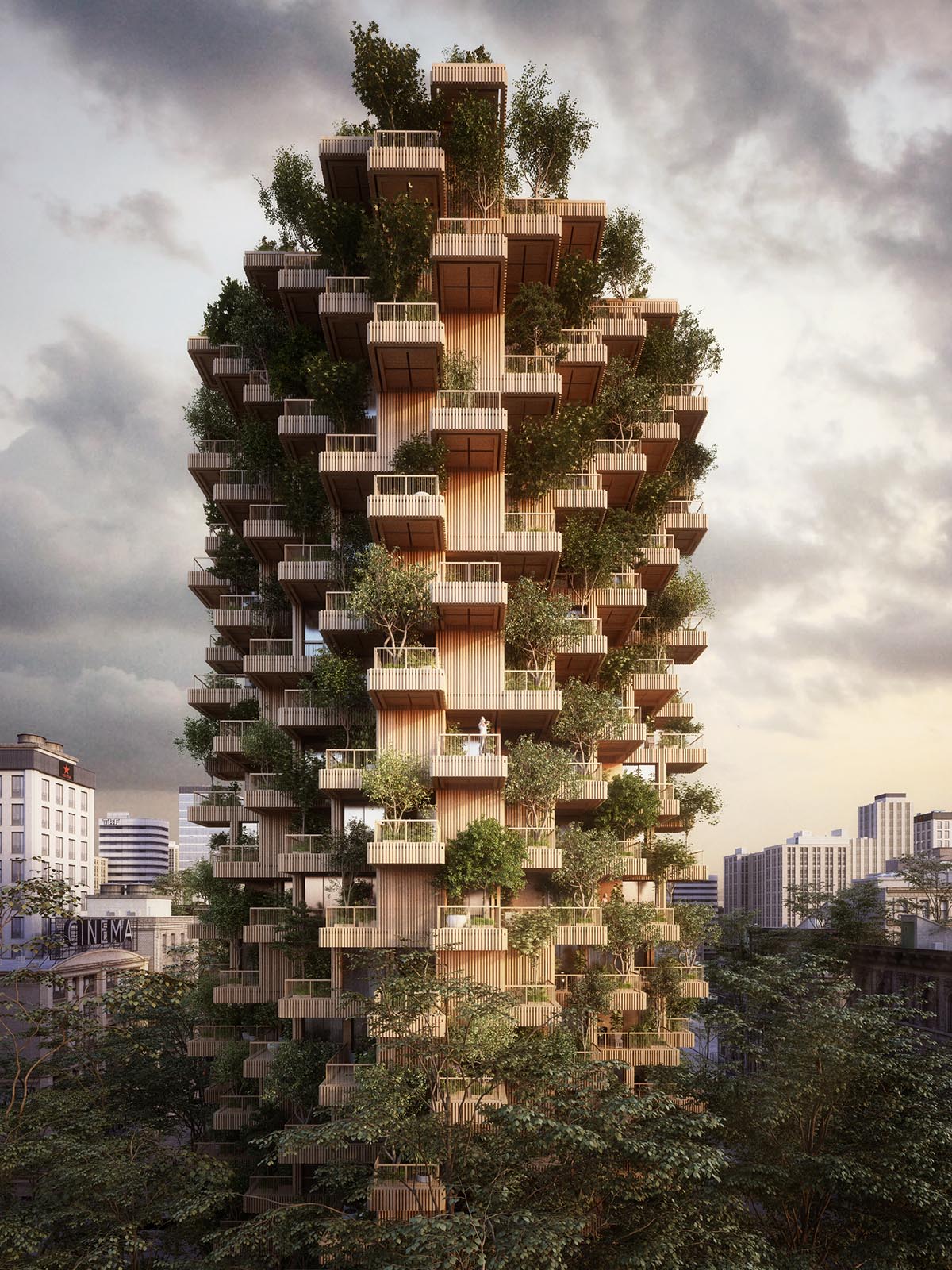
Penda's new proposal will shift your sense of direction to another way with this massively-arranged timber modules for a new high-rise in Toronto, Canada. The new modular and natural high-rise is designed with the wood consultants of CLT-brand Tmber and conceived to be a catalyst for future residential buildings that are ‘more efficient to construct’ and ‘more ecological to our environment’ than common construction methods.

Called Tree Tower Toronto, due to its natural appearance, the building shifts the usual relation from a 'building to city' relation to a ‘building to nature’ relation. The tower tries to establish a direct connection to nature with plants and its natural materiality.

"Our cities are a assembly of steel, concrete and glass. If you walk through the city and suddenly see a tower made of wood and plants, it will create an interesting contrast," said Chris Precht, partner at Penda.
"The warm, natural appearance of wood and the plants growing on its facade bring the building to life and that could be a model for environmental friendly developments and sustainable extensions of our urban landscape," he added.
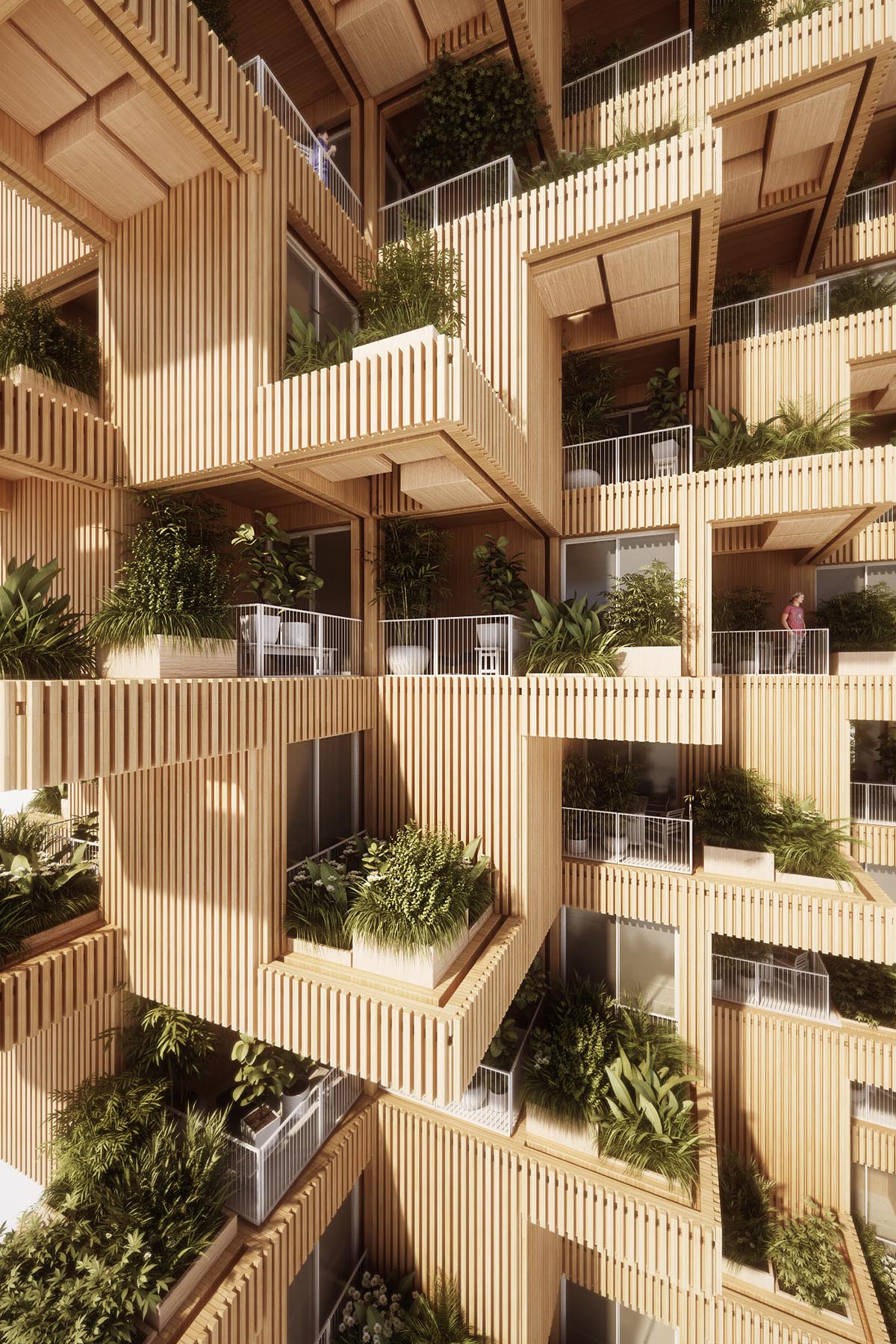
The 18-storey residential tower will reach 62 meters high and will comprise 4,500 square metres of residential areas and 550 square metres of public areas including a cafe, a children’s daycare-center and workshops for the neighbouring community.
Inspired by Moshe Safdie’s Habitat 67, the Penda's Tree Tower is designed by being used a modular building process, where pre-fabricated and pre-cut CLT panels are assembled to modules off-site at an indoor facility.
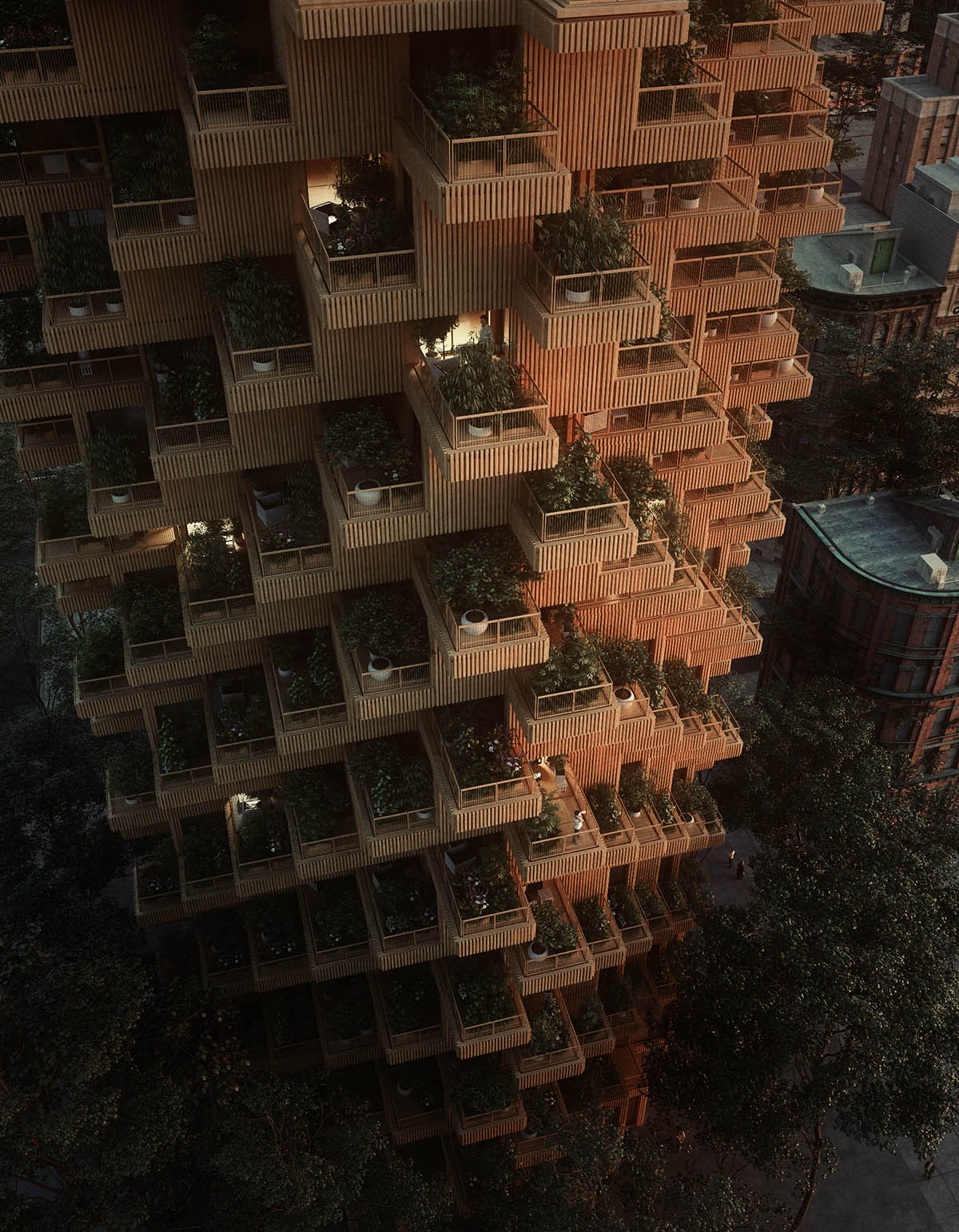
After the work on site, with foundation, ground floor and a base core is done, all modules include fixtures and finishes are delivered to the site and craned into place. During the process of stacking the modules, the timber clad facade panels are installed and sealed.
To go fully modular and prefab, the process is faster, less noisy, reduces waste and allows for a high degree of quality control as most parts of the building are assembled in a controlled indoor environment, according to Penda.

The structure of the building is built from a series of massive timber panels with a hybrid of cross-laminated timber - it will also use concrete and steel-elements where needed and can be seen as a prominent statement to use engineered wood products in vertical structures.
"The building constructed in a modular process will become more flexible. In response to fast pace of life in the future, the building should meet the user’s demand in a faster and more flexible way," added added Dayong Sun, partner at Penda.
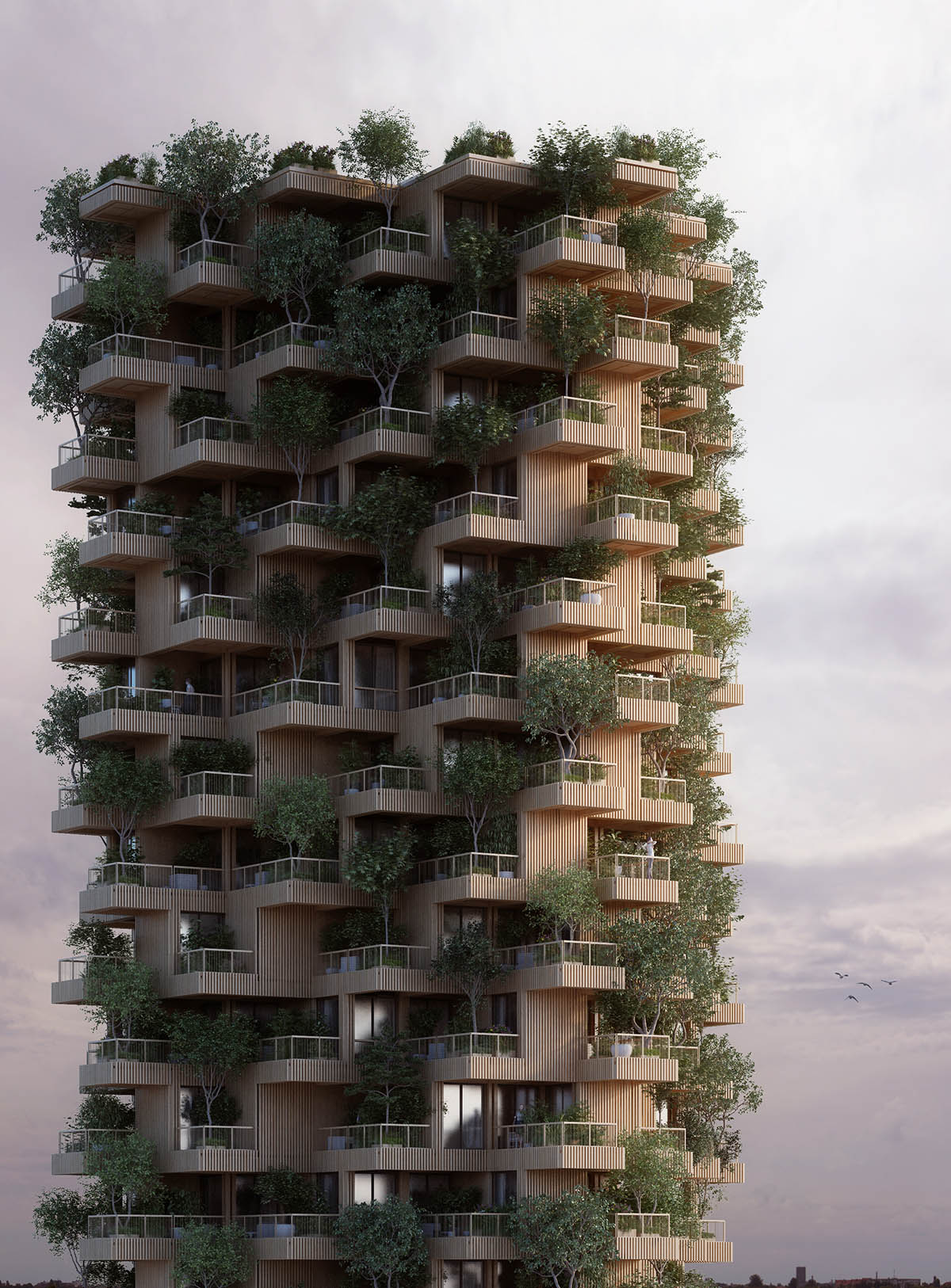
Furthermore, a modular system formed in the future city will make the module a part of the shared lifestyle more than the building. This way, the service life of the building module will be greatly increased for sustainable development."
Furthermore the modular construction systems implements already an idea about the reusability of building components in an after-life of a tower. Elements of a building like wires and copper will be a scarce resources in future.
To demolish a tower in an conventional way, buries most valuable elements of a building. To think about down- constructing a tower secures for a sustainable life-cycle of a building.
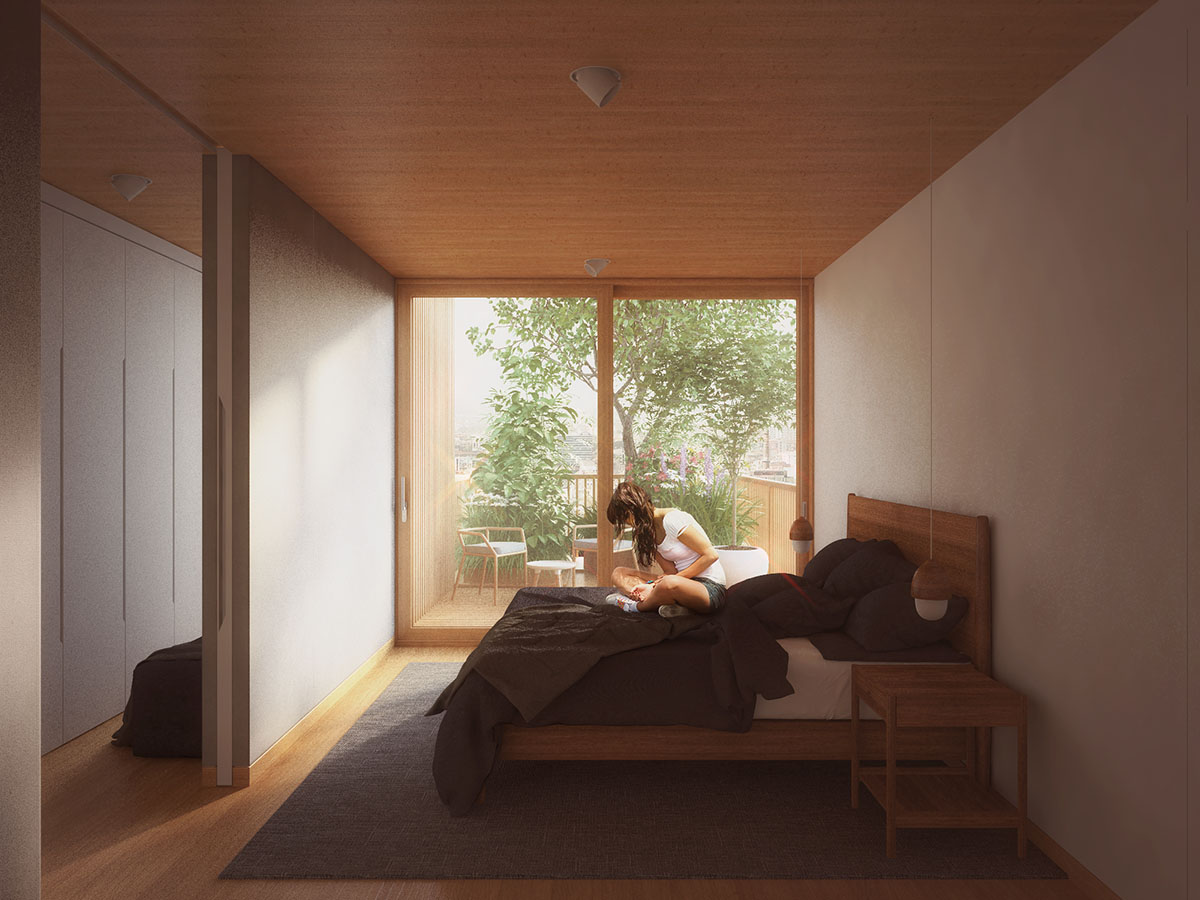
"Key element of the project is to communicate the project’s innovative use of wood and engineered wood technology used in the building. The tower is not only using massive wood panels as its main structural element, but has also timber clad panels as its facade," explained Penda.
"Despite wood as a structural and cladding material, trees and plants are also a key component on the buildings facade. Large out-door areas provide a space for herb and vegetable planters for the residents."
The botany on the terraces offer a private garden for each apartments, which creates a certain degree of privacy within the density of the city. The trees also provide a shade in summer and helps to keep the temperature low on warm days.
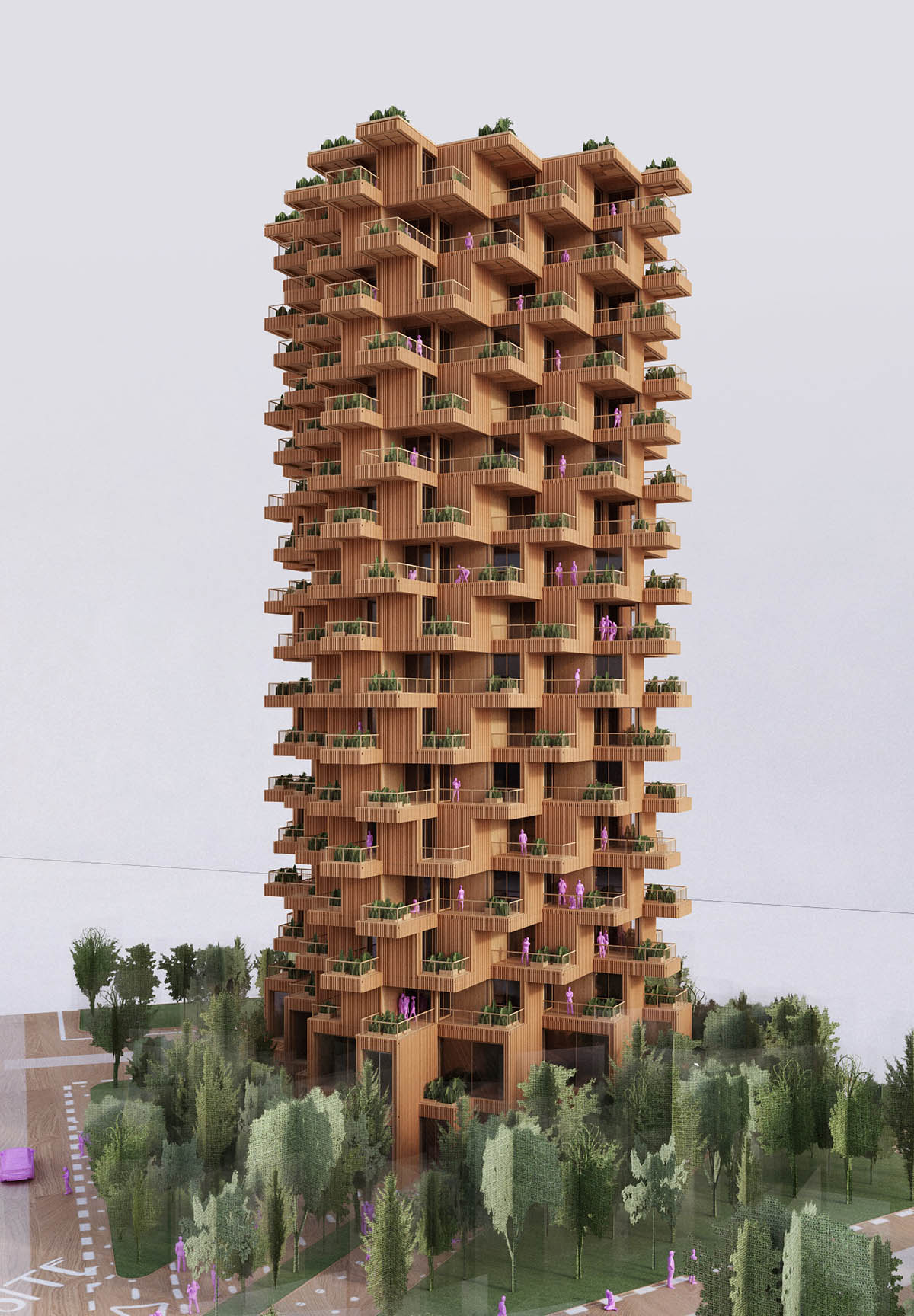
Wood as a construction material and trees on the facade offer a unique and coherent ecological design and exhibit a symbiosis of a built and a natural environment.
"In a way, we are growing the material for an extension of the tower on its terraces", the architects joke.
"This connection helps further to develop a true ecological high-rise, supplies its residents with fresher air and provides a lower carbon footprint. The extensive use of wood will set ambitious sustainability targets and will be a catalyst for similar developments in Canada," said Mark Stein, CEO of Tmber.
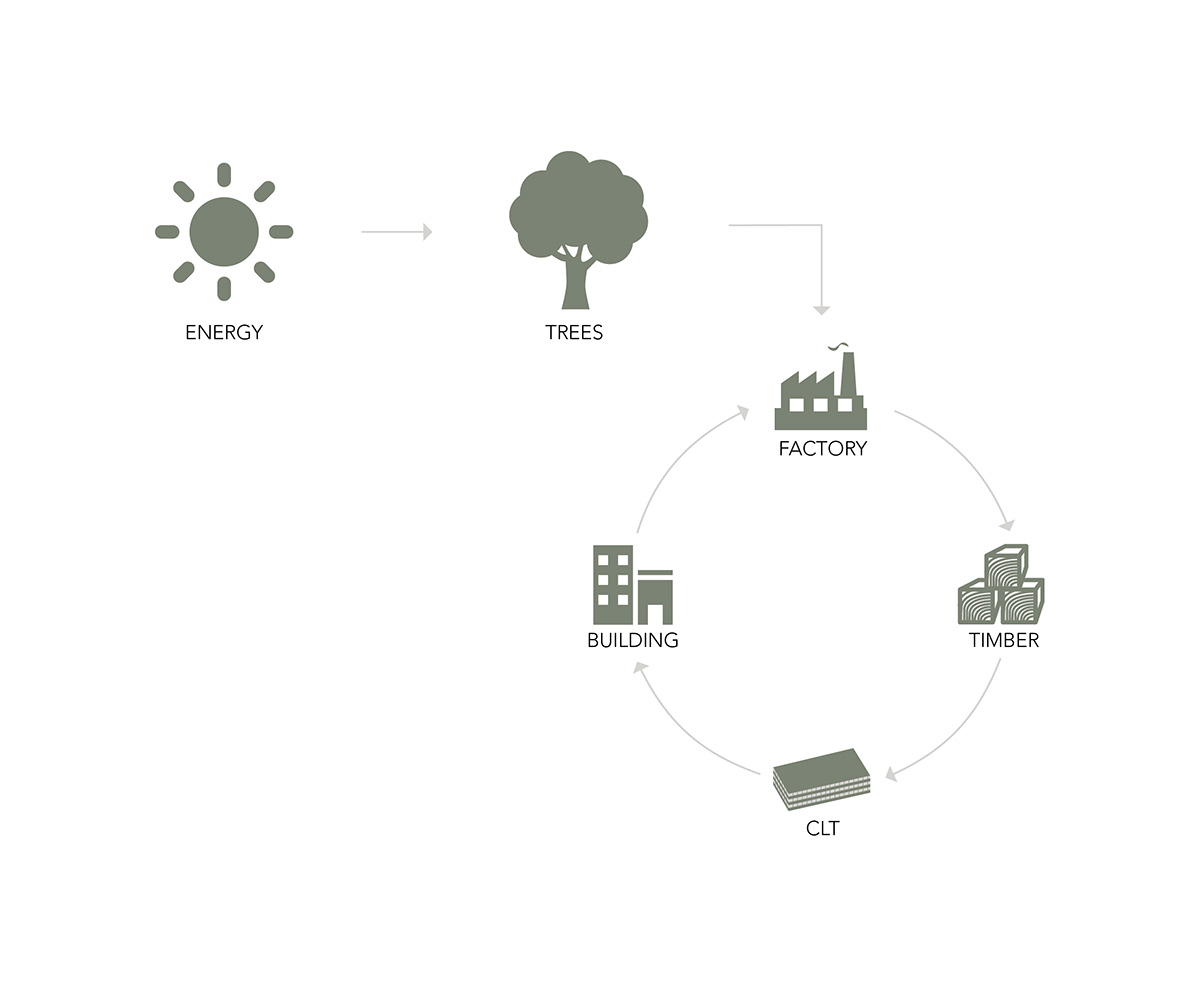
Penda states that Canada has a long tradition of wood construction and was one of the first countries in the world to change their building codes in order to use wood in vertical structures. Therefore, Canada is a pioneer in adding high-rises made out of wood to their urban fabrics.
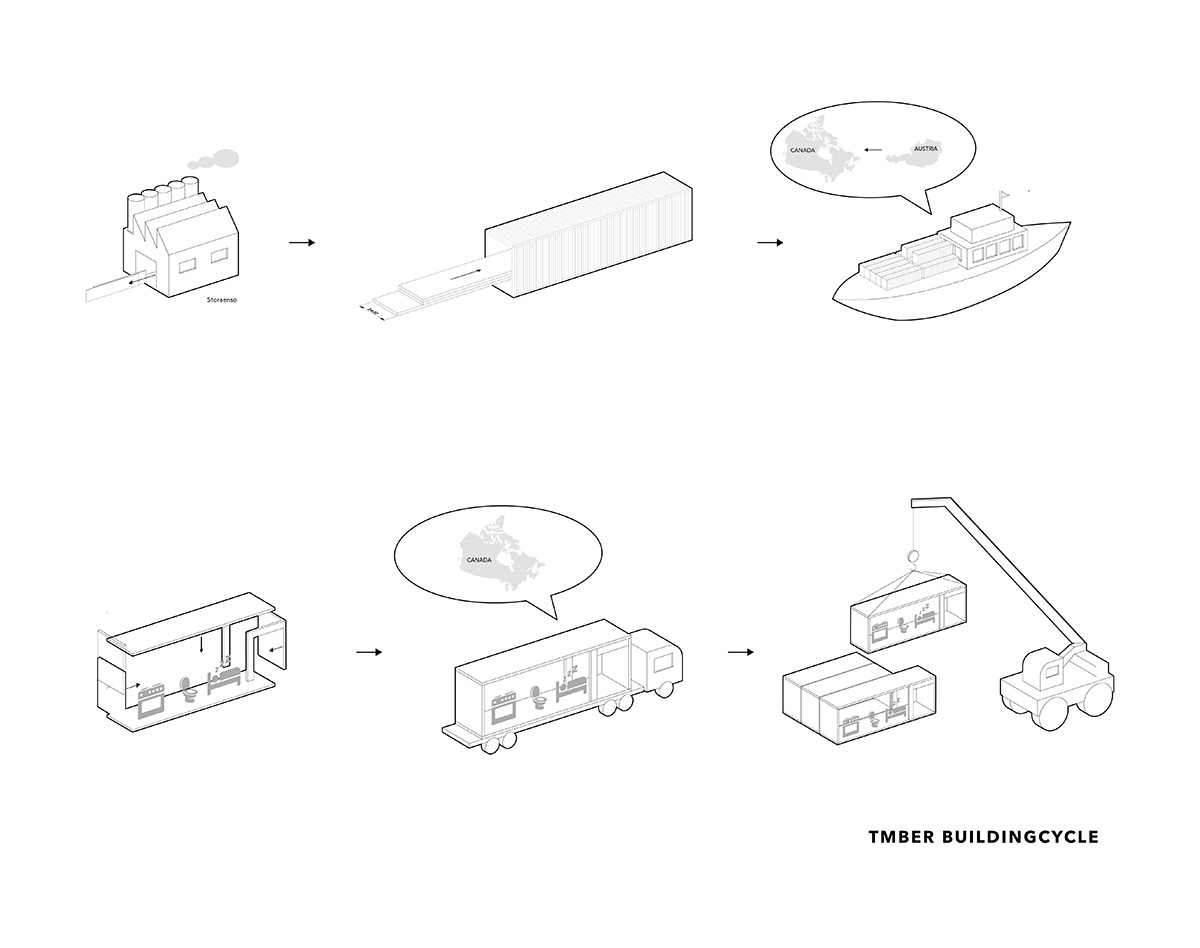
As a promotion for sustainable developments, the canadian government awards buildings that exceeds carbon footprint standards. Such credits can reach a 10-20% funding of the building cost and is a direct injection to green-light sustainable housing proposals and are an incentive for forward thinking developers.
Founded by Chris Precht and Dayong Sun in 2013, Penda is an inter-disciplinary architecture firm which has offices in China and Austria. The studio's design philosophy is based on a green architecture to combine nature, culture and people to strive for a better quality of living.
Penda had proposed an artificial landscape of hills and valleys for Wuhan in China and the new ecological-bamboo city for Beijing Design Week 2015 is one of the firm's renowned proposals to create a modular building by using the material of bamboo.
All images © Penda
> via Penda
